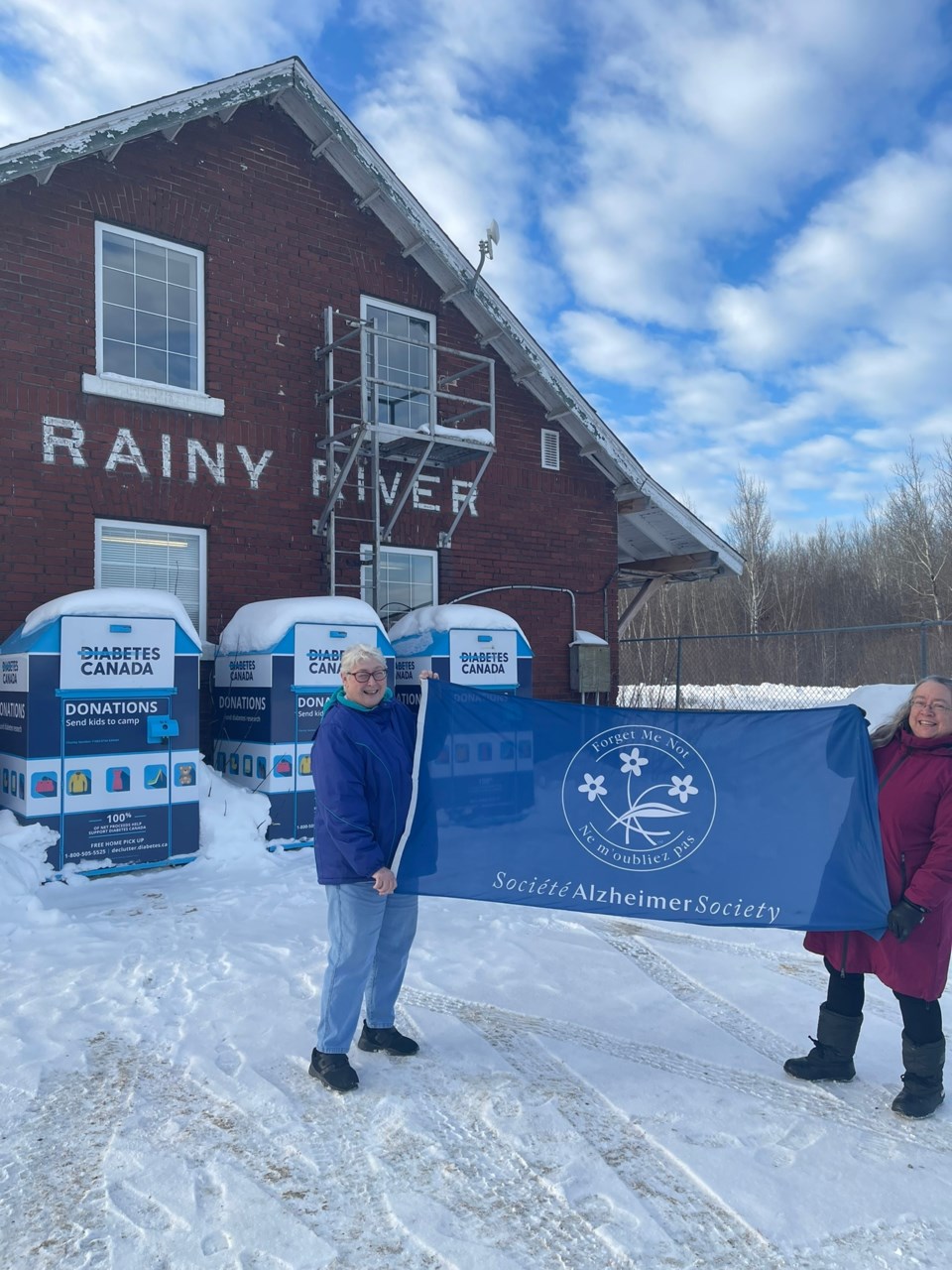Although January is Alzheimer’s Awareness Month, the opportunities in understanding the cause and effort of dementia are year-round.
Rossanna Tomashowski, the executive director for the Alzheimer’s Society Kenora-Rainy River District, said the purpose of having January designated as Alzheimer’s Awareness Month is “to create awareness and reduce the stigma” of Alzheimer’s disease and other forms of dementia.
According to the Alzheimer’s Society of Canada, more than 15 people in Canada are diagnosed with dementia every hour, which means, there is a one in five chance someone knows a person with dementia.
Tomashowski suggests that one such stigma is avoidance.
“I think people want to avoid it because they are not aware of the signs. If you are not comfortable and have the knowledge of what it’s about, what is Alzheimer’s and the 60 different types of dementia, you’re probably going to try to avoid it,” Tomashowski said.
The Alzheimer’s Society defines dementia as a set of symptoms that may include memory loss, changes in mood, and difficulties with thinking, problem-solving and language; however, they do admit that these terms are fairly broad.
Forgetfulness, for example, is common for everyone. One misconception is all elderly individual who has some form of memory loss has Alzheimer’s, which is not the case. The Alzheimer’s Society claims that almost 40 per cent of people over the age of 65 experience some form of age-associated memory impairment.
Age-associated memory impairment is a natural process of aging. Although some memories might be lost, a person with age-associated memory impairment has no difficulty making new memories and learning new tasks.
Dementia, on the other hand, is caused when the brain is damaged by diseases or a series of strokes that affects a person’s cognitive ability to perform daily tasks, routines, and ability to retain memories.
Another stigma is that dementia happens to seniors. While age is a risk factor, the Alzheimer Society has had cases of people in their 20s diagnosed with a form of dementia. This is called young onset dementia, which accounts for an estimated two to eight per cent of all dementia cases.
However, it is not entirely uncommon for people with dementia to completely stop performing daily routines or completely forget their loved ones. Dementia is a progressive disease and affects each person differently, including caregivers.
"When you educate yourself through volunteering or engaging in one of our fundraisers, or one of our education sessions, that would help," Tomashowski said. "Because the people that really need us, the caregiver of a loved one that’s going through this. Their head is buried knee-deep because they are taking care of their loved ones.”
Tomashowski said that they hold virtual, as well as in-person, education sessions like their upcoming Dementia 101 session on Thursday. These support sessions help people connect, and through these connections, caregivers are connected to a network of people who know what they are going through.
“It’s very meaningful for the people that go through our organization,” said Tomashowski.
Although Tomashowski acknowledges the success of their programming, she still feels like there is much more work to be done.
“There are still people that we need to reach. Because you know how busy we are? We’re small and mighty, but I just feel we are not reaching the people that we need to. So, education, education, education and let’s talk about it,” Tomashowski said.
Tomashowski offers some suggestions on how to care for someone with dementia. Daily activities help stimulates the mind as well as the body. For example, people are social beings. People with dementia can often remember distant memories more easily than recent events.
Caregivers plan for programming that involves exercize and socialization.
"Before the pandemic, we held a Memory Lane Café. You know say somebody was an engineer before. So, guess what, they want to build a train out of Legos. Then you talk about what they remember," Tomashowski said.
"Maybe you got back to a time when nobody even knew them because it’s all tucked away. Music is the last thing to go in your memories, so we ask them what’s their favourite music. Then we play that for them and their face light up.”
To learn more about Alzheimer’s disease and other forms of dementia visits the Alzheimer’s Society website or contact your local branch through the Northwest Health Line.
